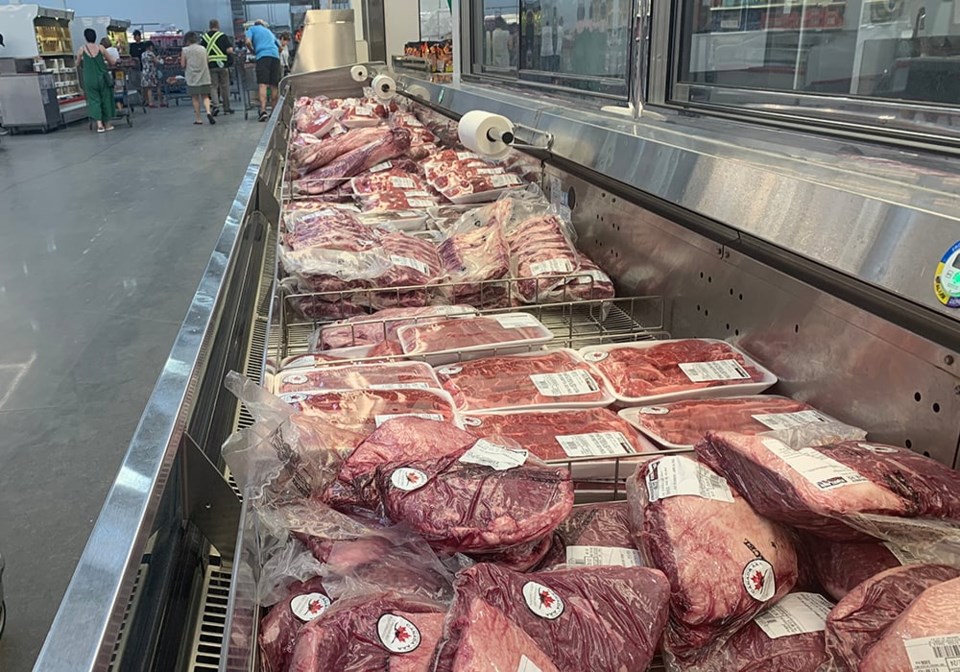Canada’s beef and red meat industry is asking the public for help to prevent the United Kingdom from joining a trade deal.
The Canadian Cattle Association, Canadian Meat Council and National Cattle Feeders’ Association launched a campaign Sept. 12 called Say No To a Bad Deal. Their goal is to pressure the federal government so it won’t formally admit Britain into the Comprehensive and Progressive Trans Pacific Partnership.
“Tell the Federal Government to say no to a bad trade deal and renegotiate the CPTPP with the United Kingdom,” says the website, saynotoabaddeal.ca. “Trade deals only make sense when they are fair to Canadians.”
The campaign stems from an announcement in July, when Canada and other Pacific nations welcomed Britain into the CPTPP. At a signing ceremony in New Zealand, Britain became the 12th member of the trade pact, joining Canada, Australia, Brunei, Chile, Japan, Malaysia, Mexico, New Zealand, Peru, Singapore and Vietnam.
International Trade Minister Mary Ng supported the addition of the United Kingdom to the CPTPP, noting in a news release that Canada and Britain are committed to “open, predictable and inclusive” trade.
Canada’s red meat sector doesn’t share that opinion. Beef and pork groups slammed the decision, saying Britain has not met the standards of the free trade agreement.
The central issue is that the U.K. does not recognize the safety of Canada’s meat processing and food production systems so British authorities will not permit imports of Canadian beef or pork.
“The proposed agreement will see the U.K. exporting over $50 million of their meat products into the Canadian market, while Canada will be unable to export any meat products into their market,” says a release from the CCA, the meat council and the NCFA.
The Canadian government is working on a bilateral deal with Britain, within CPTPP, to sort out issues like red meat trade.
Parliament must pass any legislation that allows Britain to join the CPTPP. The beef and meat groups want federal politicians to vote ‘no’ to that legislation.
A deficit in red meat trade with Britain is one thing, but the beef and meat groups are also worried about the future of the CPTPP.
Other countries want to join the trade agreement and those nations should be required to meet the standards of the deal, not define their terms of entry.
“The CPTPP sets a high standard for progressive trade and the deal proposed with the U.K. would set a dangerous precedent for future countries looking to join,” said Nathan Phinney, CCA president and a cattle producer from New Brunswick.
Chris White, Canadian Meat Council president and chief executive, said there are other consequences if science-based rules are abandoned in trade deals.
“Not only will this deal hurt the pockets of Canadian meat processors and farmers, it additionally puts consumers at risk by deprioritizing scientific-based controls and lowering the bar for international regulations.”
Britain’s refusal to accept imports of Canadian beef and pork is connected to the U.K. farm lobby.
Agricultural groups have pressured the U.K. government to keep Canadian beef and pork out of Britain, claiming that meat products from Canada are produced with inferior standards.
“I am pleased that our government continues to maintain its commitment to our food safety standards,” said U.K. National Farmers Union president Minette Batters.
“It is an absolute red line for us that food produced using practices that are illegal here — for instance, the use of hormones in beef and pork production and chemical washes for carcasses — should not be allowed on our market.”
Canadian meat groups say the idea that Britain has higher standards is absurd, because Canada’s food safety system is “widely recognized as a leading set of standards in the world,” they said in a statement.
The groups may have some support in Ottawa. In August, an Agriculture Canada spokesperson said the government expects the United Kingdom to comply with the rules of the CPTPP.
That includes regulations around the import of Canadian beef and pork, which should be “science and risk based.”
“From day one, the Government of Canada said it would welcome new members as long as they can uphold the high standards of the CPTPP, and the U.K. has assured Canada and all members that they will fully comply with the sanitary and phytosanitary obligations of the CPTPP,” said Agriculture Canada spokesperson Samantha Seary.
Contact [email protected]





